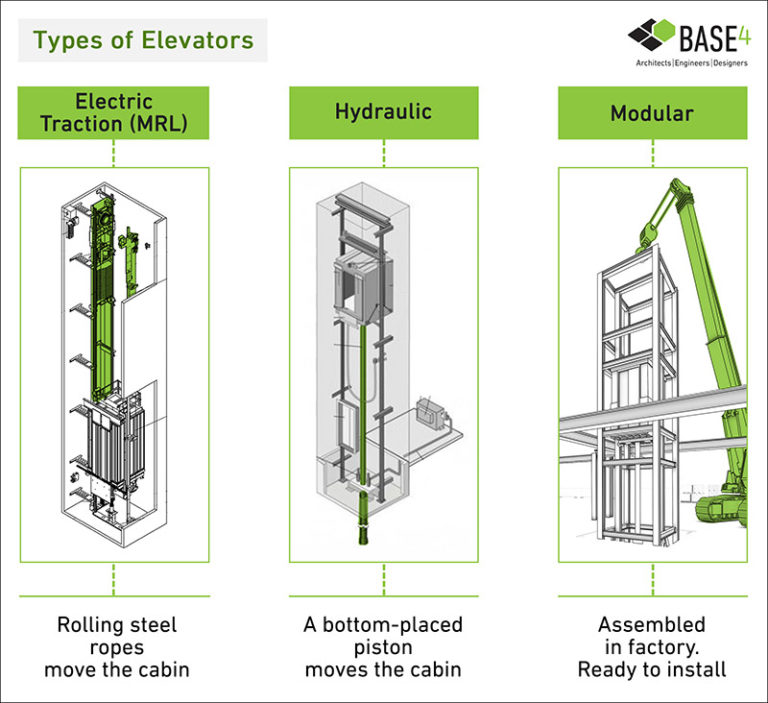If you've ever ridden in an elevator, you're probably familiar with the different types of elevators available. Two of the most common types are hydraulic and traction elevators. If you're in the market for an elevator, it's important to understand the pros and cons of each type to make an informed decision that meets your needs.
Pain Points of Hydraulic vs Traction Elevator
Choosing between hydraulic and traction elevators can be a tough decision. Each type has its own set of unique characteristics that make it well-suited for specific applications. However, choosing the wrong type of elevator can lead to problems down the road, including increased maintenance costs and reduced performance.
Hydraulic vs Traction Elevator - Which to Choose?
When deciding between a hydraulic and a traction elevator, it's important to consider your specific needs. Hydraulic elevators are typically more affordable and better suited for use in low-rise buildings. They're also easier to install and maintain. On the other hand, traction elevators make use of a counterweight to move the elevator car up and down, making them more energy-efficient and better suited for high-rise buildings. They're also generally smoother and faster than hydraulic elevators.
Main Points About Hydraulic vs Traction Elevator
In summary, the decision to choose hydraulic or traction elevators depends on a variety of factors. Hydraulic elevators are a good choice for low-rise buildings on a budget, while traction elevators are ideal for high-rise buildings where speed and energy efficiency are a priority. Both types have their own advantages and disadvantages, so it's important to consider your specific needs and budget when making a decision.
Hydraulic vs Traction Elevator - A Personal Experience
When I was working on a multi-story office building project, we faced the task of choosing between hydraulic and traction elevators. While I initially leaned towards hydraulic elevators due to their affordability, we ultimately went with traction elevators because of their superior speed and energy efficiency. This decision not only improved the building's overall performance, but also saved the owners money in the long run on energy costs.
Hydraulic vs Traction Elevator - Maintenance
Maintenance is an important consideration when choosing between hydraulic and traction elevators. Hydraulic elevators typically require more maintenance, as they use a hydraulic pump to lift the elevator car. Over time, the hydraulic oil can degrade and lead to problems with the elevator's performance. Traction elevators, on the other hand, require less maintenance due to their use of a counterweight to move the elevator car.
Hydraulic vs Traction Elevator - Energy Efficiency
Energy efficiency is another important consideration when choosing between hydraulic and traction elevators. Traction elevators are generally more energy-efficient than hydraulic elevators because they use a counterweight to move the car up and down. With less energy required to lift the car, energy costs are generally lower with traction elevators. Additionally, traction elevators typically generate less heat than hydraulic elevators, which can further decrease energy costs.
Hydraulic vs Traction Elevator - Noise Level
Noise level is another factor to consider when choosing between hydraulic and traction elevators. Hydraulic elevators tend to be noisier than traction elevators due to their use of a hydraulic pump. If noise is a concern, traction elevators may be a better choice.
Question and Answer
Q: Can hydraulic elevators be used in high-rise buildings?
A: While hydraulic elevators can technically be used in high-rise buildings, they're generally not well-suited for this application. This is because hydraulic elevators require a large amount of energy to lift the elevator car, which can increase energy costs and lead to performance issues over time.
Q: Are traction elevators more expensive than hydraulic elevators?
A: Traction elevators are generally more expensive than hydraulic elevators. However, they are more energy-efficient and require less maintenance over time, which can help to offset the higher upfront cost.
Q: How does the speed of hydraulic and traction elevators compare?
A: Traction elevators are generally faster and smoother than hydraulic elevators due to their use of a counterweight to move the car up and down. Hydraulic elevators, on the other hand, tend to be slower and less smooth.
Q: What are the main advantages of hydraulic elevators?
A: The main advantages of hydraulic elevators are their affordability and ease of installation. Additionally, they require less space and are generally quieter than traction elevators.
Conclusion of Hydraulic vs Traction Elevator
Choosing between hydraulic and traction elevators can be a tough decision. It's important to consider your specific needs and budget when making a choice. If you're looking for an affordable and easy-to-install elevator for a low-rise building, hydraulic may be the way to go. However, if speed, energy efficiency, and performance are your top priorities, traction elevators are the clear choice. Both types have their own advantages and disadvantages, so it's important to do your research and choose wisely.
Gallery
Traction Vs. Hydraulic Elevators | TKE Insights June 2021

Photo Credit by: bing.com / traction elevators elevator
The Differences Between A Traction Elevator And A Hydraulic Elevator
Photo Credit by: bing.com / traction
Developers: Make Sure You Pick The Right Elevator! - Base4

Photo Credit by: bing.com / elevator shaft
Traction Versus Hydraulic Lifts: Advantages And Disadvantages
Photo Credit by: bing.com / traction hydraulic advantages lift diagram lifts disadvantages versus
Traction Conventional Vs. Traction MRL | TKE Insights Dec 2021

Photo Credit by: bing.com /